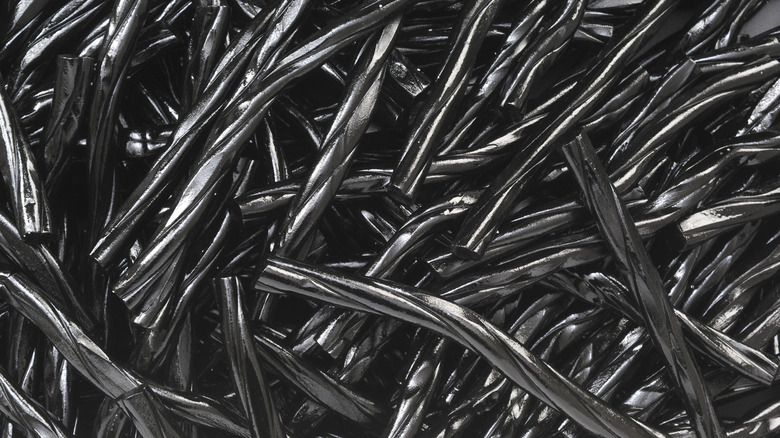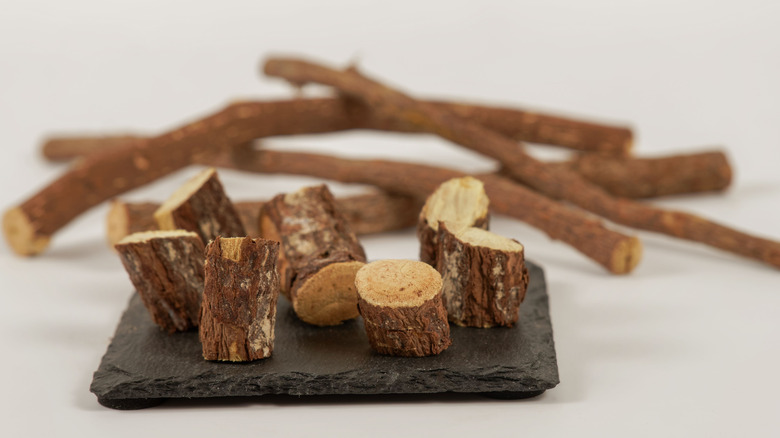What Flavor Is Black Licorice, Anyway?
We may receive a commission on purchases made from links.
In the food world, there are few flavors as polarizing as black licorice. Ask some folks, and they'll tell you they can't get enough, while others actively avoid it like a plague. Perhaps one thing is universal, though, and that's the question: What flavor is black licorice, anyway?
The answer will take you on a journey back in time and around the world, from the Middle East and India to Egypt and Scandinavia, and beyond — all regions in which it has either been sourced or become ensconced in the culture. The licorice root itself, Glycyrrhiza glabra, is actually a legume, and is super sweet (50 times sweeter than standard white sugar, to be exact). It also packs around 300 compounds, but its signature flavor is attributed to one in particular: glycyrrhizin.
The taste of black licorice is often described as bitter, earthy, and herbaceous, with comparisons to anise and fennel. In fact, those references are so pervasive that it's not uncommon for candies that call themselves licorice to be imbued with anise oil as well (although there is a pungent difference between anise and licorice flavors).
Licorice's use in food and as medicine
It's helpful to note that if you're averse to the flavor profile of black licorice, you don't have to rule out the red kind of licorice, as it's not the same taste. Red Vines, for example, are formulated to taste like a berry blend. Licorice is also not inherently salty — that flavor comes from ammonium chloride, not literal table salt. Some licorice variations are infused with additional flavors like mint, too, or even come covered in chocolate. You may also find notes of licorice in other delicious treats, like horchata, or recipes made using Chinese five-spice powder.
Flavor aside, licorice has been used for medicine throughout the course of history. In particular, it has the power to act as an anti-inflammatory, ease acid reflux, ward off cavities, remedy acne, and function as an antimicrobial. That said, this root can also be dangerous when consumed in large quantities over extended periods. According to a study published in the Foods journal, glycyrrhizin has the potential to build up in your system and cause issues like low potassium levels, arrhythmia, and kidney and congestive heart failure — outcomes that are a lot more egregious than licorice's potentially offensive flavor. Of course, if you're a licorice lover that's fond of that super unique, sometimes tough-to-pinpoint, but exceptional flavor, you can still enjoy black licorice within reason.

